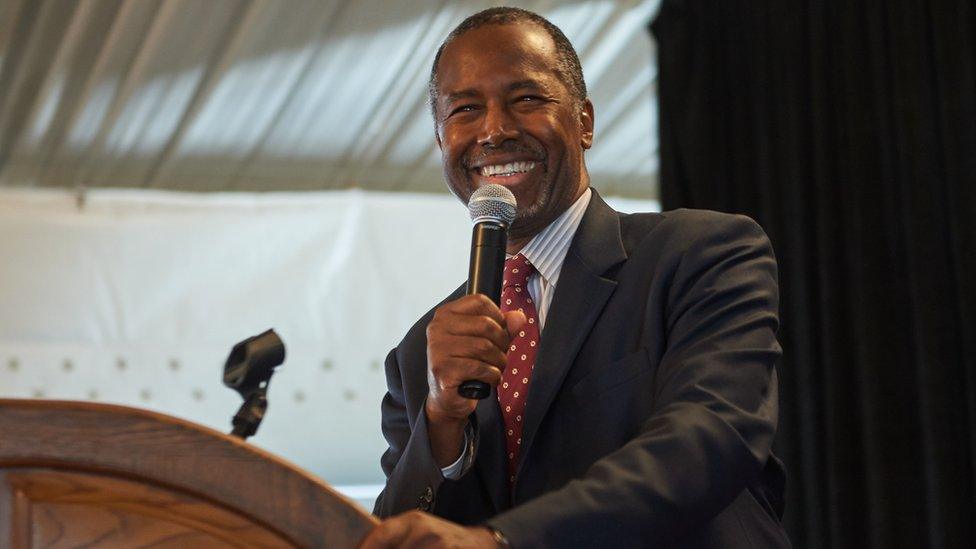Republican presidential race: Who will be the next to drop?
- Published
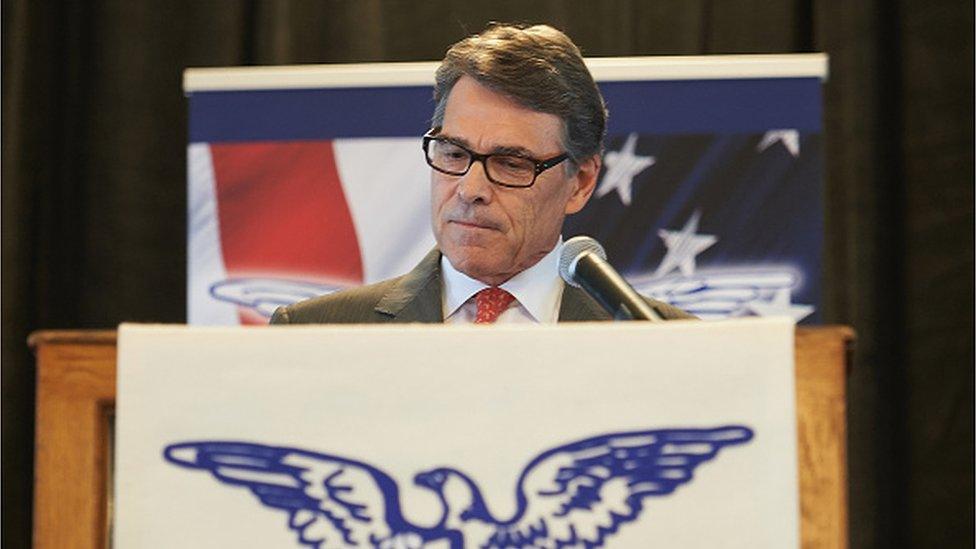
Rick Perry announced last Friday he was suspending his campaign operations and heading home to spend more time with his wife, dogs and Texas sunsets (not necessarily in that order). So after we pour out a drink for the former Texas governor with good hair and trendy glasses, it's time to begin that favourite Washington parlour game. Who's next?
While none of the remaining candidates find themselves in quite the same dire straits as Perry - forcing campaign staffers to go without pay - the mean season is upon us. If history is any guide, as many as half of the currently announced candidates will be out of the game by the time the process of selecting the Republican nominee formally begins in February.
So now, as we get ready for the next Republican debate Wednesday night, let's belly up to the table and place some bets.
To make things easier, we'll pare down the list by excluding candidates with gobs of money (Jeb Bush, Marco Rubio, Ted Cruz) or at least a modicum of political momentum (Carly Fiorina, Ben Carson, John Kasich, Mike Huckabee).
Here's a guide to the nine Republican candidates most likely to un-succeed.

9. Donald Trump
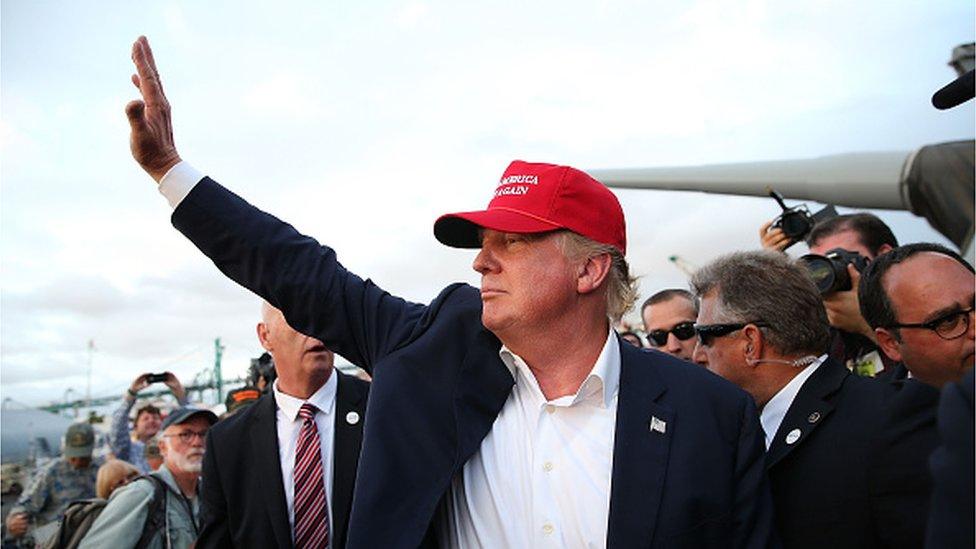
Wait, what? He's the Republican front-runner, you say. There's no way he's going to drop out early. Of course, not dropping out is exactly what you'd expect Trump to do. Trump laughs at your expectations. He's going to put your expectations on a bus and deport them to Mexico. Maybe he'll get bored with this crazy political race and decide he wants to be the next head of Fifa. Maybe he'll volunteer for the first manned mission to Mars. With Trump everything is possible. Odds: 300-1.

8. George Pataki
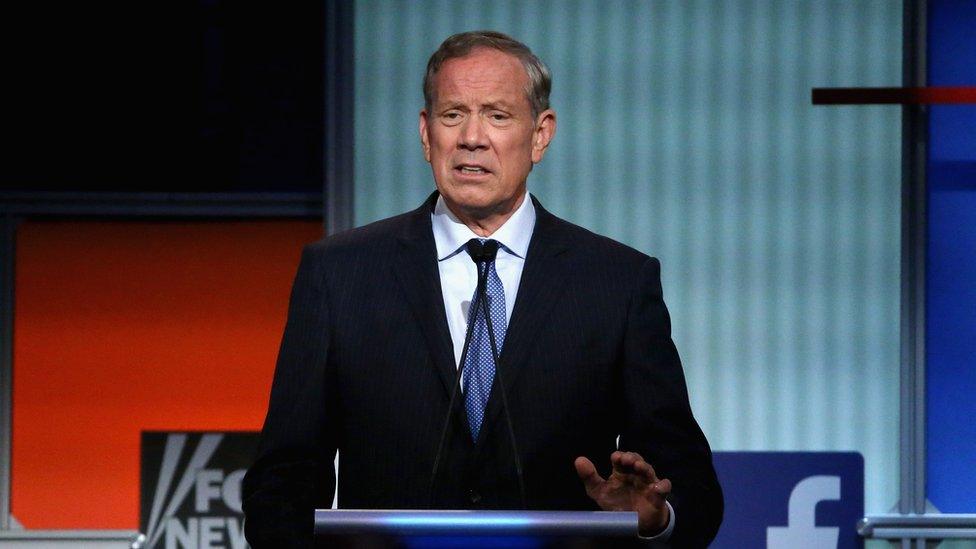
Yes, the former New York governor is solidly ensconced at the second-tier "kids' table" debates. And yes, his support in the polls is more than a few degrees below tepid. But here's the thing. No one really expected Pataki to win or even seriously compete. So the fact that he's not doing either shouldn't come as a big surprise to anyone, including the candidate. The campaigns that tend to flame out early are the ones with high hopes - and big budgets to match. Perry thought he actually had a shot and assembled a top-level political operation. Pataki is running a low-budget campaign, so he's less beholden to the almighty fundraisers whose lack of support killed Perry's bid. Odds: 75-1

7. Scott Walker
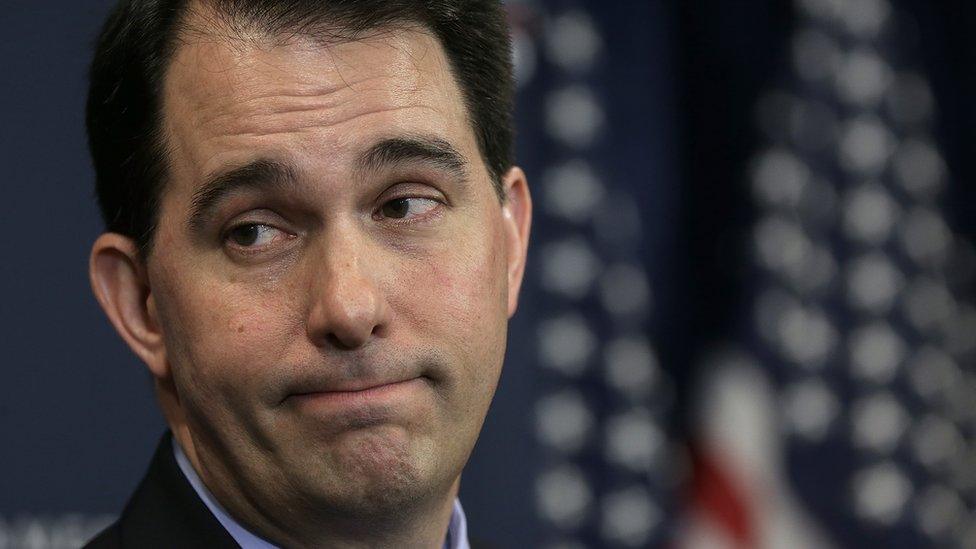
What on earth is Scott Walker doing on this list? Just a few months ago, he was a top-tier contender. He gave a rousing speech in Iowa last January and appeared to be on a glide path to win that first-in-the nation caucus state. Then Trump happened (and, to some extent, Carson too). All of a sudden he's looking less like a take-no-prisoners conservative avatar and more like just another politician. His support has cratered. His fundraising numbers were never that impressive, and if the next round of Federal Election Commission figures released on 15 October show the cash drying up, watch out. Even his long-time benefactors, the deep-pocketed Koch brothers, may not be able to save him. Odds: 50-1

6. Lindsey Graham
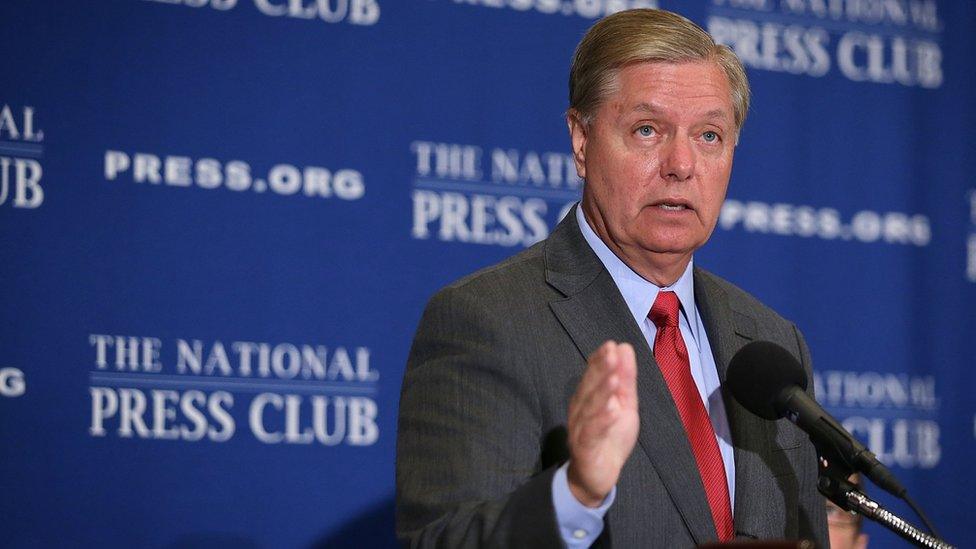
He's the senior senator from South Carolina, his state holds a key primary early in the election cycle, and he's getting trounced there by Trump in the latest polls. A recent South Carolina poll, external found 78% of the respondents think Graham should drop out of the race. If Graham can't catch on in his home state, it's safe to say he's not going to catch on anywhere. Graham entered the race to advance his muscular views on foreign policy, and he'll likely stay in as long as he has a platform - any platform - to air them. When Graham eventually leaves the race, look for him to toss his support to the biggest hawk left in the field - whoever that is. Odds: 35-1

5. Chris Christie
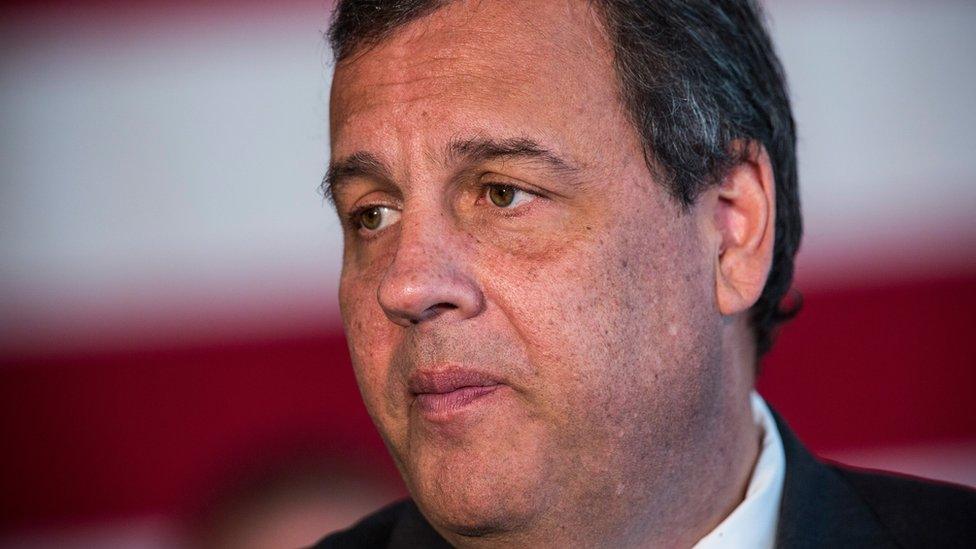
At this point Christie may be better off spending his campaign funds trying to invent a time machine so he can travel back to 2012 and run for president. Prior to that election, Republican powerbrokers were practically begging him to challenge what many saw as a less than inspiring Mitt Romney. Instead, he's stuck in 2015, plodding along toward the bottom of the pack and putting all his efforts into making a strong showing in New Hampshire, where he's currently trailing just about everyone of note. Although it's not looking good for the New Jersey governor, he'll probably hang around long enough to see if he can reverse his fortunes in that New England state. Odds: 25-1

4. Rand Paul
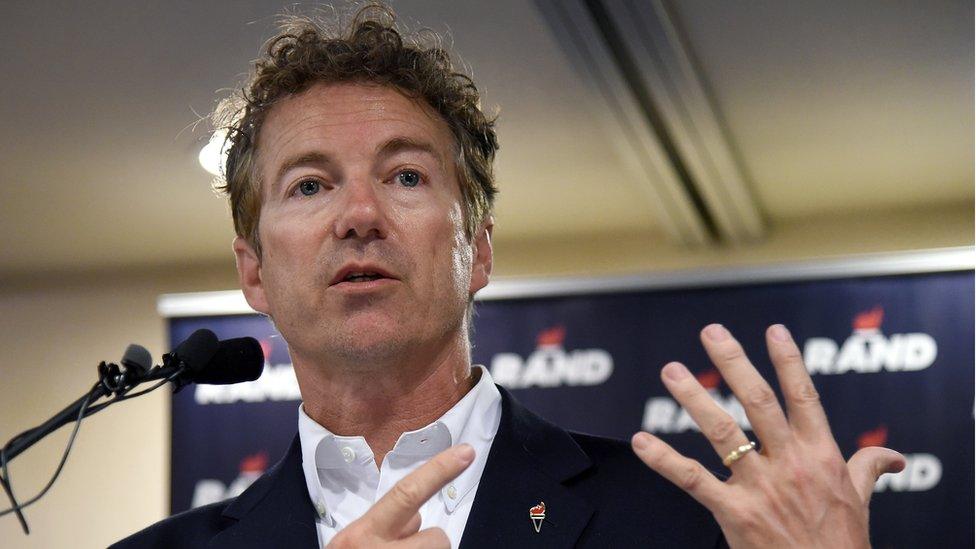
It wasn't supposed to end like this for Paul. When he launched his campaign in April, many predicted the unconventional Kentucky senator would expand the grass-roots libertarian base of support built by his father, Ron Paul, during his presidential campaigns to a wider Republican audience. Instead, he seems to have alienated his father's backers while never winning over the party faithful. Reporters are already writing his campaign's epitaph. The candidate recently offered to pay for a separate nominating caucus in Kentucky, allowing him both to run in his state's presidential primary and seek re-election to the Senate. That should tell you all you need to know about what he thinks the future holds for him. Odds: 20-1

3. Rick Santorum
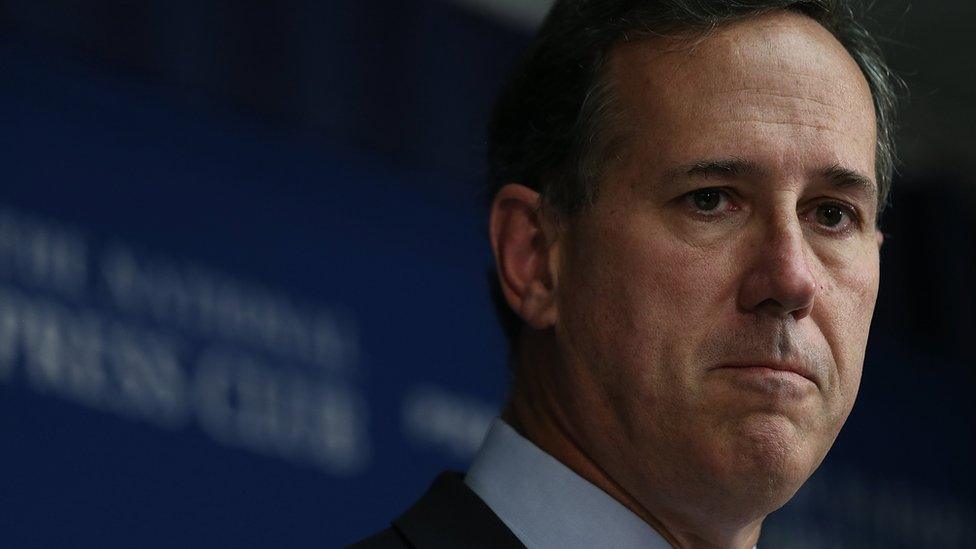
Four years ago the former Pennsylvania senator was in the same position he is now - languishing in the polls, with few giving him any hope of success. He went on to win the Iowa caucuses and 10 other states, finishing second only to Romney. So what's different this time around? Before, Santorum was pretty much alone in appealing to his party's evangelical conservative base. This time, he's competing against Cruz and Huckabee - better funded, better organised candidates who, unlike Santorum, are qualifying for the top-tier debates. He's reportedly running low on money, external, and several of his key staffers have departed his campaign. That noise you hear is a political death rattle. Odds: 10-1

2. Jim Gilmore
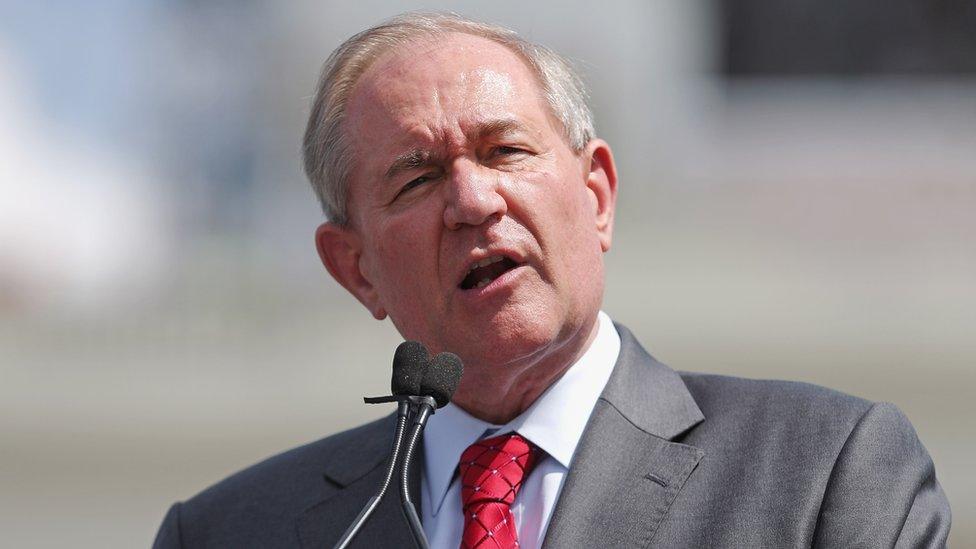
In a recent poll,, external the former Virginia governor tallied zero support. That's not a statistical zero, either. That's an absolutely-none-of the-poll-respondents-said-they-supported-him zero. He's the only one of the 16 candidates who didn't even qualify for Wednesday's undercard debate. He could probably drop out at this point and no one would notice. So why isn't he number one on this list? Well, he only announced in early August, so he's barely gotten his feet wet, politically speaking. And, like Pataki, there's really not much campaign infrastructure necessary to keep Gilmore going. Got enough loose change to spring for an occasional plane ticket to New Hampshire or Iowa? How about a bus ticket? Yes? Then, let's keep this crazy ride going. Odds: 5-1

1. Bobby Jindal
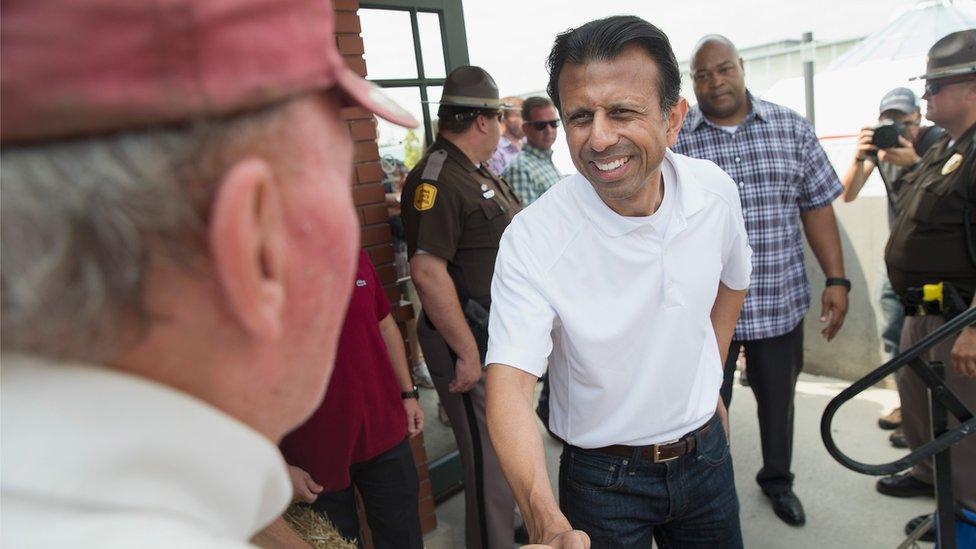
Back in 2008, the Louisiana governor was the future of the Republican Party, the conservative answer to Barack Obama. Since then, his popularity in his home state has plummeted thanks to acrimonious budge battles. The governor's brand of policy-wonk expertise wasn't selling to Republican voters, so he tried to rebrand himself as an evangelical culture warrior to little effect. Now he's started lobbing attacks on Trump, perhaps hoping that a battle with the frontrunner can elevate his standing and boost him into later primetime debates. It's a plan first tried by Perry, and we saw how well that worked for him. Governor Jindal, you're on the clock. Odds: 3-1

Subscribe to the BBC News Magazine's email newsletter, external to get articles sent to your inbox.
- Published10 September 2015
- Published16 March 2016
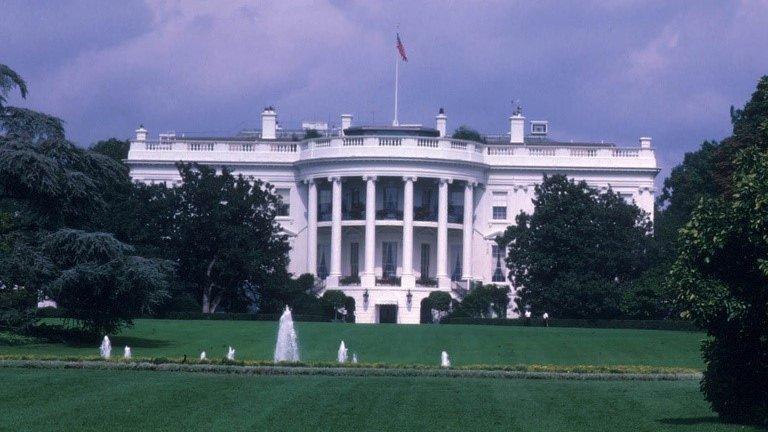
- Published15 September 2015
- Published16 September 2015
